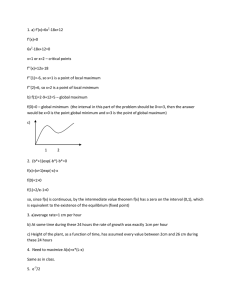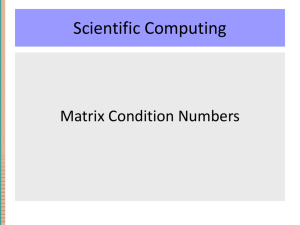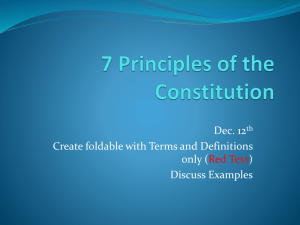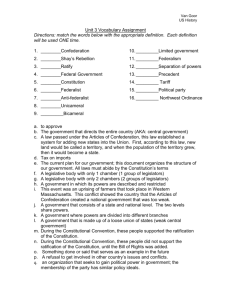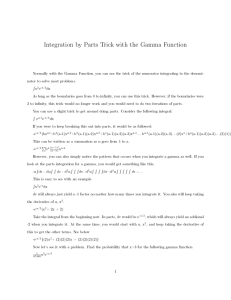B. Analyze how powers of government are distributed and shared
advertisement
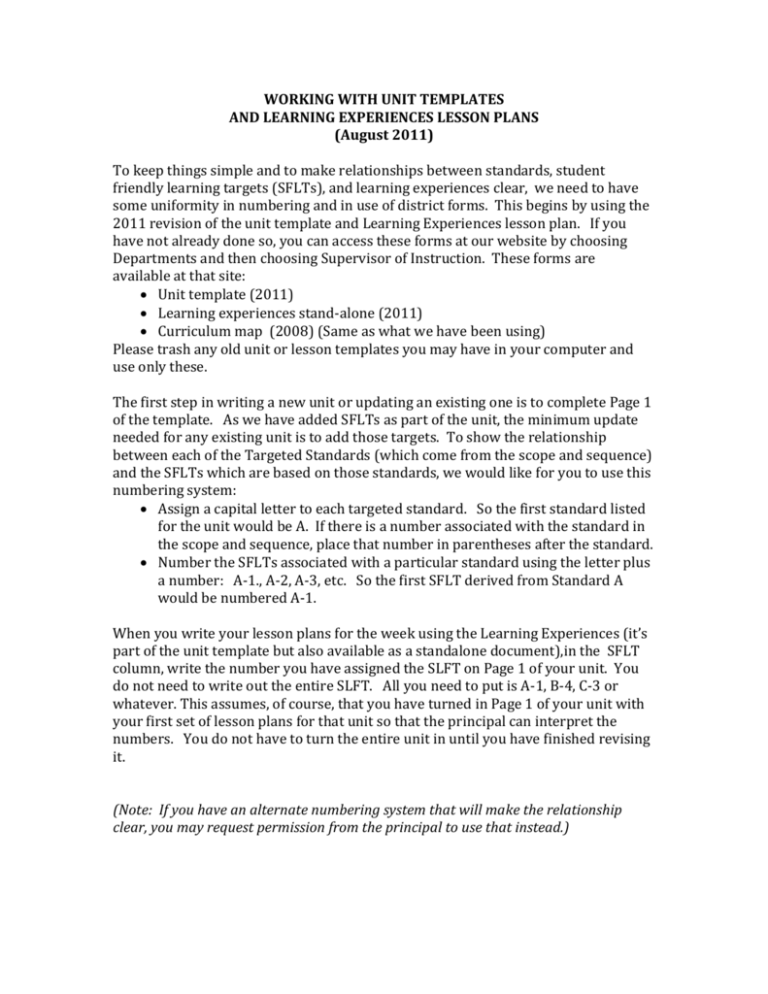
WORKING WITH UNIT TEMPLATES AND LEARNING EXPERIENCES LESSON PLANS (August 2011) To keep things simple and to make relationships between standards, student friendly learning targets (SFLTs), and learning experiences clear, we need to have some uniformity in numbering and in use of district forms. This begins by using the 2011 revision of the unit template and Learning Experiences lesson plan. If you have not already done so, you can access these forms at our website by choosing Departments and then choosing Supervisor of Instruction. These forms are available at that site: Unit template (2011) Learning experiences stand-alone (2011) Curriculum map (2008) (Same as what we have been using) Please trash any old unit or lesson templates you may have in your computer and use only these. The first step in writing a new unit or updating an existing one is to complete Page 1 of the template. As we have added SFLTs as part of the unit, the minimum update needed for any existing unit is to add those targets. To show the relationship between each of the Targeted Standards (which come from the scope and sequence) and the SFLTs which are based on those standards, we would like for you to use this numbering system: Assign a capital letter to each targeted standard. So the first standard listed for the unit would be A. If there is a number associated with the standard in the scope and sequence, place that number in parentheses after the standard. Number the SFLTs associated with a particular standard using the letter plus a number: A-1., A-2, A-3, etc. So the first SFLT derived from Standard A would be numbered A-1. When you write your lesson plans for the week using the Learning Experiences (it’s part of the unit template but also available as a standalone document),in the SFLT column, write the number you have assigned the SLFT on Page 1 of your unit. You do not need to write out the entire SLFT. All you need to put is A-1, B-4, C-3 or whatever. This assumes, of course, that you have turned in Page 1 of your unit with your first set of lesson plans for that unit so that the principal can interpret the numbers. You do not have to turn the entire unit in until you have finished revising it. (Note: If you have an alternate numbering system that will make the relationship clear, you may request permission from the principal to use that instead.) EXAMPLE OF COMPLETED TARGET BOXES and LESSON PLAN CELLS ORGANIZER Why is our Federal government organized the way that it is? TARGETED STANDARDS STUDENT FRIENDLY LEARNING TARGETS (SFLTs) A. Interpret the principles of limited government (e.g., rule of law, federalism, checks and balances, majority rule, protection of minority rights, separation of powers) and evaluate how these principles protect individual rights and promote the "common good.” (SS-HS-1.2.2) A-1. I can identify the principles of limited government. This includes rule of law, federalism, checks and balances, majority rule, separation of powers. A-2. I can explain how the principles of limited government protect the rights of individuals and promote the “common good.” A-3. I can evaluate how the principles of limited government operate in a specific situation. B. Analyze how powers of government are B-1. I can identify the three branches of the distributed and shared among levels and Federal government , the officials associated branches and evaluate how this distribution with each, and the powers and of powers protects the "common good" responsibilities assigned to each branch by (e.g., Congress legislates on behalf of the the Constitution. people; the President represents the people B-2. I can explain why the Constitution as a nation; the Supreme Court acts on divides powers and responsibilities among behalf of the people as a whole when it the three branches as it does and how this interprets the Constitution). (SS-HS-1.2.1) division protects the rights of the governed. ESSENTIAL QUESTIONS 1. How can power be divided so that no one person or group of officials can become too powerful? SFLT M A-1 A-3 LEARNING EXPERIENCES & ASSESSMENTS Interactive lecture using PPT to explain principles. Read account of passage of a new law; working with partner identify principles at work… RESOURCES NEEDED PPT Reading passage



